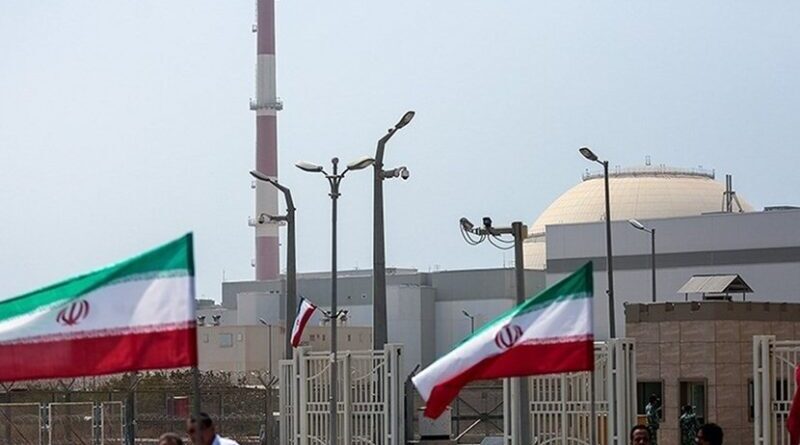Nuclear Talks Call Iran’s Bluff – OpEd
Last week brought new indications that the leaders of the Islamic Republic of Iran want to make a nuclear bomb.
The disclosure was part of the newly released nine-page report by the UN nuclear watchdog, the International Atomic Energy Agency (IAEA). It stated that “Tehran has conducted work on a highly sophisticated nuclear triggering technology that experts said could be used for only one purpose: setting off a nuclear weapon”.
This is not the first time that the IAEA has come across evidence that indicates Iran has military ambitions for its nuclear programme. In November 2009, as revealed by the Guardian, the IAEA asked the Iranian government to explain “evidence suggesting that Iranian scientists have experimented with an advanced nuclear warhead design”.
These revelations show that the international community has good and valid reasons to seriously doubt the Iranian government’s claims that its nuclear programme is for civilian purposes only.
They also provide the west with more valid justification to impose even tougher sanctions against the Islamic regime for its illegal nuclear activities. However, sanctions alone are not enough.
When it comes to efforts to prevent Iran from acquiring nuclear weapons, since 2008, the international community and especially western countries have discovered another powerful tool at their disposal: diplomacy. This is why they have been more successful in isolating Iran than ever before.
More of the same should follow. Direct negotiations with the Iranian government should be offered with more vigour than in the past, as the west is likely to emerge as the winner under both possible scenarios.
The first scenario is that Iran decides to take up the offer and negotiate seriously.
Under the current circumstances, due to its increasing isolation, Iran would most probably emerge as the weaker party, much to the west’s advantage. The new revelations by the IAEA will make it even more difficult for Iran to persuade the Chinese and the Russians to back its position, thus leaving Iran more isolated at the international level. This is in addition to Iran’s regional problems, which have been exacerbated by its cold war against the Saudis, currently being played out in Bahrain.
Except for Iraq, no government in the Middle East is siding exclusively with Iran’s position. Not even the Syrians (whose leader Iran is assisting in his battle to crush the opposition) nor Egypt, which Iran was hoping to count on as an ally after the fall of Hosni Mubarak. Such isolation gives the west the upper hand in its diplomatic dealings with Iran, something which it can use to extract further concessions from Tehran during the talks.
The second scenario is that Iran attends the negotiations with the goal of dictating its own demands, or merely to buy time – as it did in the previous rounds of talks. This would also be to the west’s advantage, judging by the recent performance of Iran’s chief nuclear negotiator, Saeed Jalili.
In fact, Iran’s current nuclear negotiation team is one of the least professional and worst performing in the history of the Islamic Republic. The P5+1 negotiators, headed by the EU’s foreign policy chief, Catherine Ashton, had a chance to experience this at first hand during the last round of negotiations in Istanbul on 15 January.
During the first day of talks, at 12pm Jalili excused himself to go for prayers. He kept everyone waiting for three hours, until he decided to return. And when he did, it was with complaints that he had a headache. After that, Iran’s unwillingness to drop its preconditions led to the talks almost breaking up on the first day, which then caused the Iranians to drop their preconditions.
Even then, negotiators’ intransigence made it difficult for anyone to believe that Iran was serious about reaching a deal. A repetition of such a scenario would be useful for the west as the P5+1 participants, including the Chinese and Russians, will become even more convinced that Iran is not interested in serious negotiations, thus helping to promote western plans to impose tougher UN sanctions, with Chinese and Russian support.
Sanctions against Iran work. There is no doubt about it. Iran’s nuclear programme is being slowed down because of them.
So does diplomacy. With this method, the international community, and especially the west, has called Iran’s bluff. Now the Iranians can’t accuse the west of only being interested in “threats and hostilities”. And thanks to Iran’s isolation and behaviour as was demonstrated in Istanbul, this option has turned out to be a gift that keeps on giving.
The west should continue to use it – and what better time than now, for no one knows what tomorrow could bring. If Iran’s supreme leader decides to stop backing hardliners such as Mahmoud Ahmadinejad and Jalili, who cause so much damage to Iran’s position, then the tables could turn against the west.
Any major shift in his support towards conservatives, such as parliament speaker and former nuclear negotiator Ali Larijani, who knows a thing or two about negotiations and building regional influence, could mean a reversal of fortunes for the west. The frightening idea of a nuclear-armed Iran with regional influence and more leverage against the west would then look more likely.
This article appeared at The Guardian and is reprinted with the author’s permission

